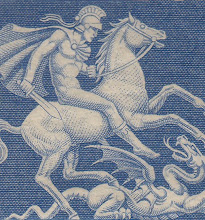The BBC News website reports that
"Iran agrees to curb nuclear activity"
Reading the detail one finds that:
"Iran has agreed to curb some of its nuclear activities in return for about £4.3bn ($7bn) in sanctions relief."
And in a statement, William Hague said that
"[The] Nuclear programme won't move forward for six months and parts [will be] rolled back"
Presumably the words in brackets were inserted by the BBC to clarify the statement, but why do they assume that parts "will be rolled back" rather than "MIGHT be rolled back"?
The agreement was reached after John Kerry, presumably acting on Obama's orders, joined the conference and somehow managed to placate the French who opposed the previous draft.
So Iran is going to stop enriching uranium for six months, and they might roll back some of their programme, although no details are give. In exchange the West is going to lift sanctions.
In that the other day Iran declared that it "has an inalienable right to enrich uranium", this doesn't seem to be a very good deal for the West. A six month's break in a project of this nature (even if it happens) is nothing and who knows what the lifting of sanctions will allow them to acquire. As far as I can see, there is no suggestion of any inspection scheme to confirm that the agreement is being kept, so it hardly seems to be worth the paper it's written on
Israel, quite rightly in my view, is angry. Israeli Prime Minister Benjamin Netanyahu told his cabinet it was a "historic mistake" and that "Today the world became a much more dangerous place".
To me, it is very much like the Munich agreement with Hitler promising "Peace in our time" with Israel being in the position of Poland. All we need now is Kerry or Hague getting off their aircraft and waving a piece of paper to provide the full Chamberlain scenario.
Subscribe to:
Post Comments (Atom)


No comments:
Post a Comment